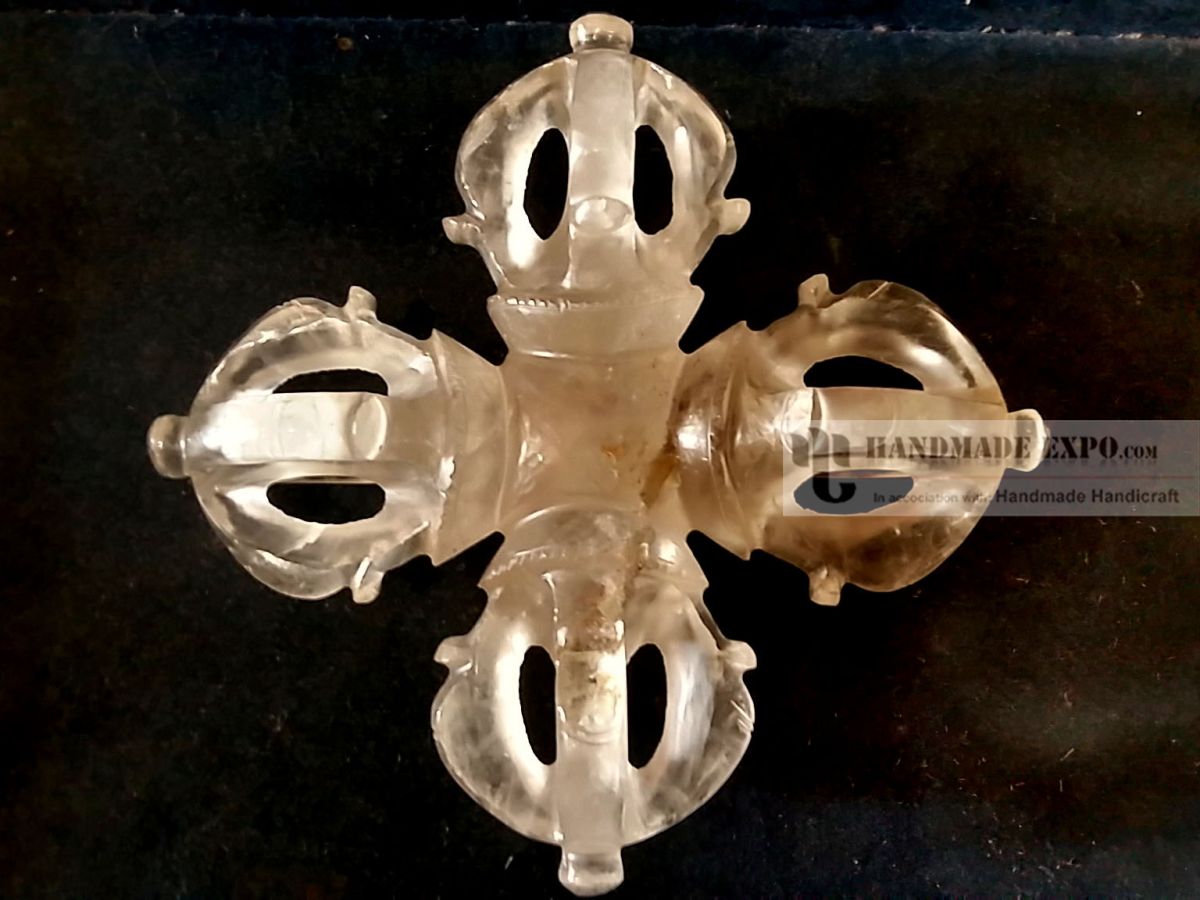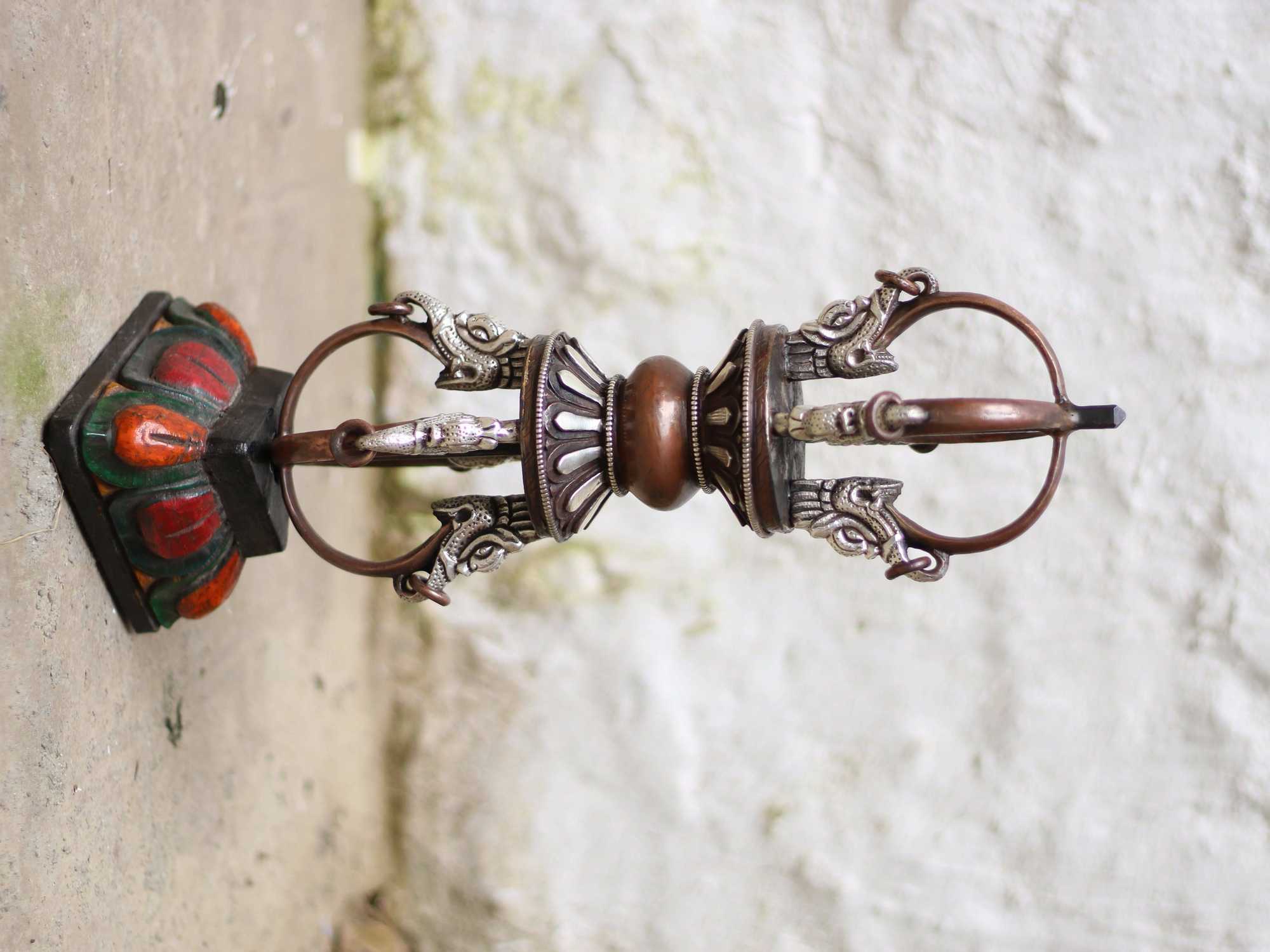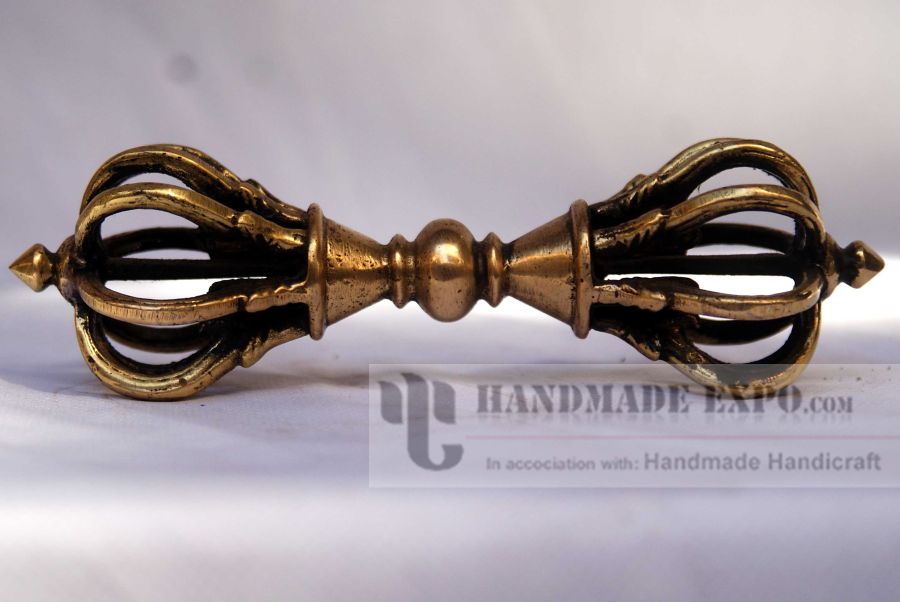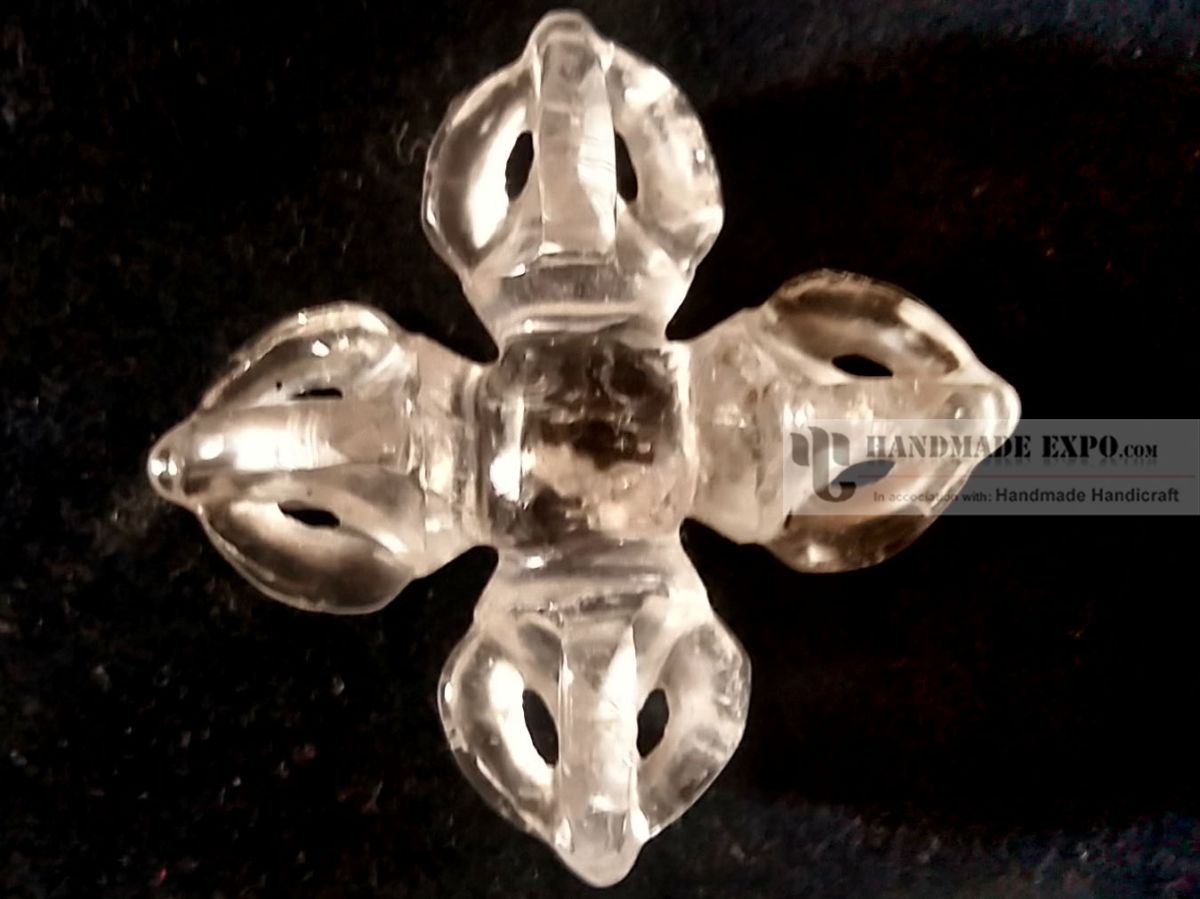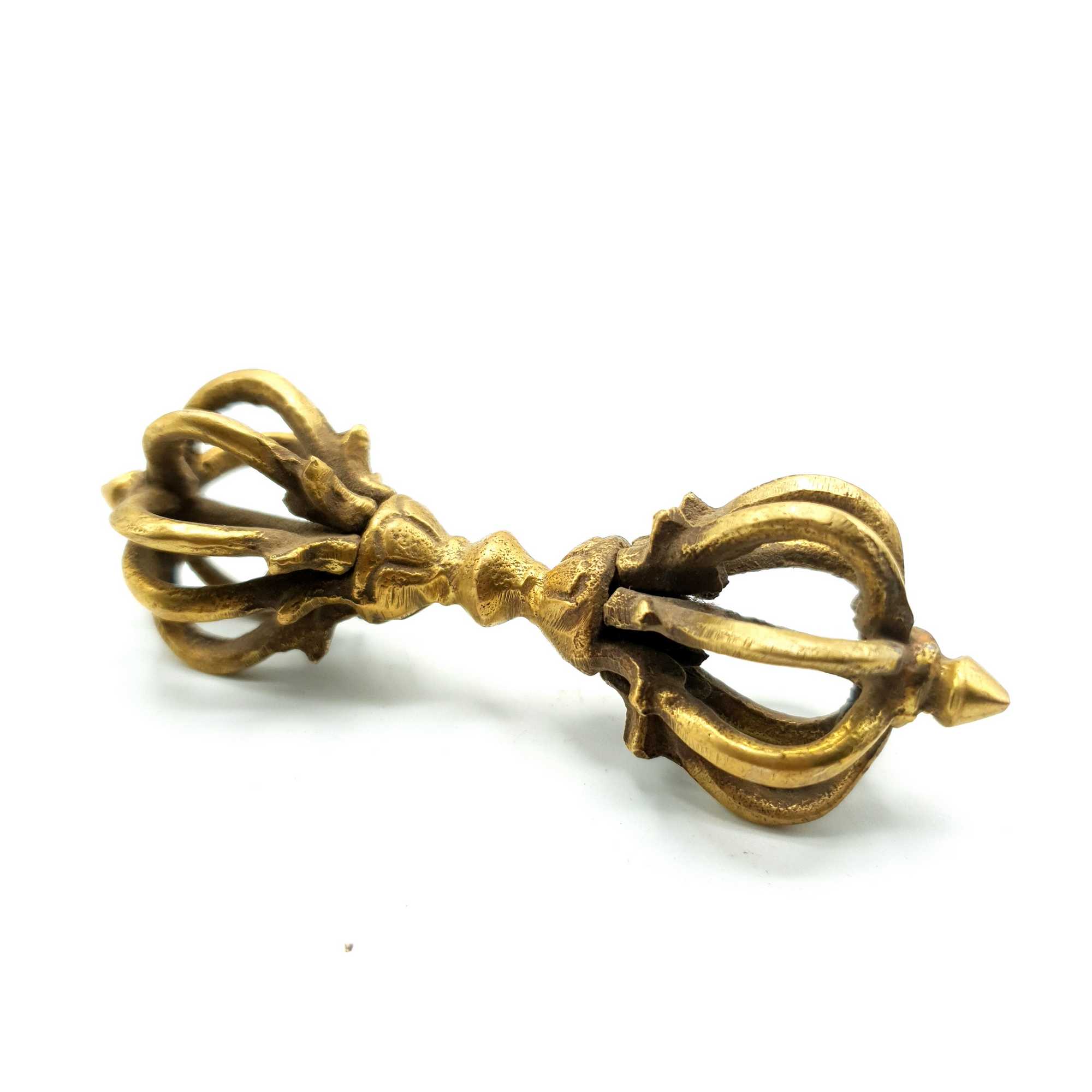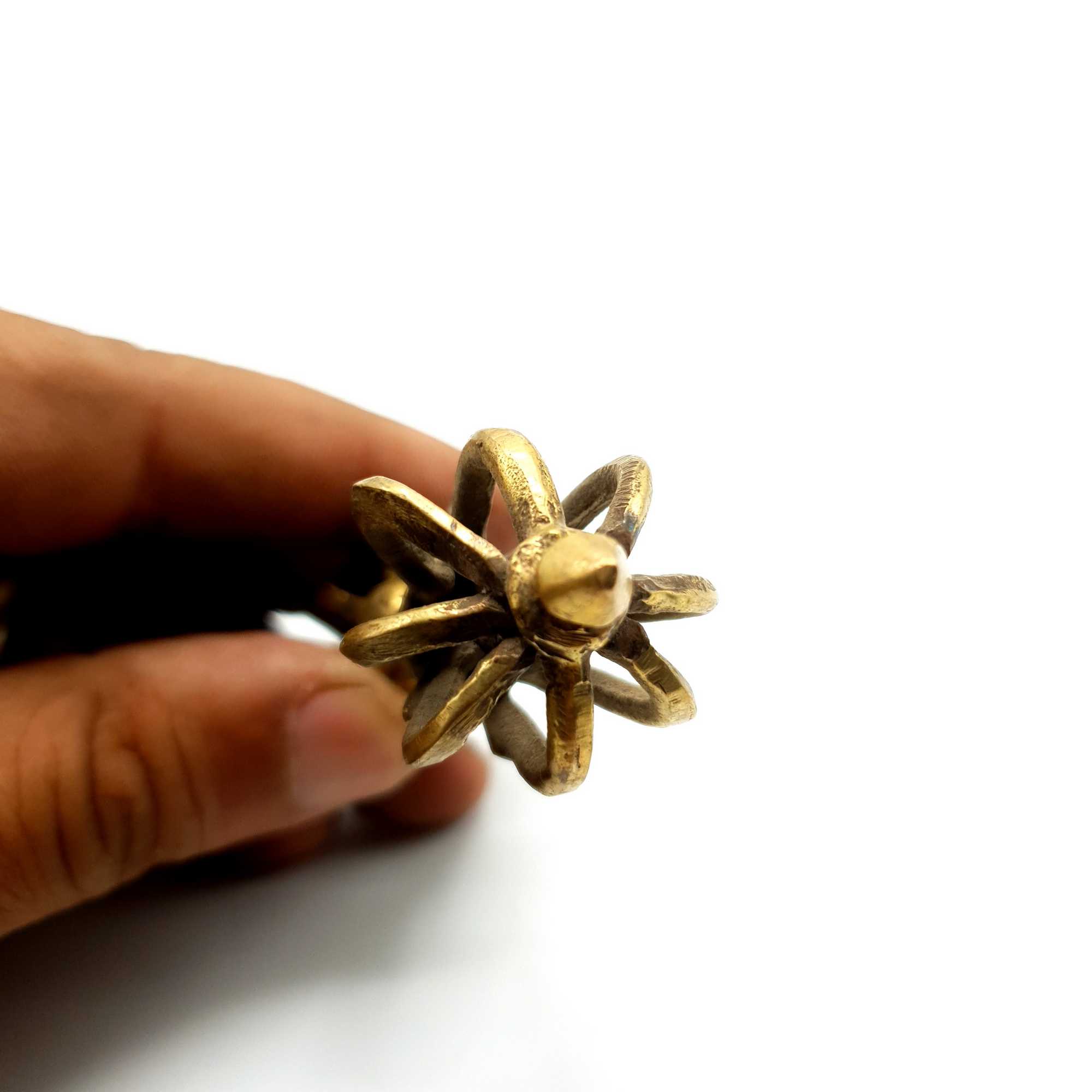Code
HCS18435
Weight
920 gm / 2.03 lbs
Size
Height
20cm (8") Width
20cm (8") Material
Brass
Availability
Available
Date Added
2020-06-02 05:58:07
Note : We used to sell this product 5 years ago so it may no longer be in our stock.
It is possible that we still have it with our suppliers but the price could be different from before.
Feel free to order. We will verify availability and inform you promptly.
It is possible that we still have it with our suppliers but the price could be different from before.
Feel free to order. We will verify availability and inform you promptly.

Safe Payment
We accept Paypal, Money Transfer, Bank Transfer
Confidence
Protection covers your purchase and personal data.
Worldwide Delivery
We ship Worldwide, except Russia.Shipping cost US$25.2 for upto 0.5 kgs

Hotline
Talk to help line for your question on 9841267335About Double Dorje :
The double vajra or crossed vajra is formed from four lotus-mounted vajra heads that emanate from a central hub towards the four cardinal directions and symbolizes the principle of absolute stability. In the cosmographic description of Mount Meru a vast crossed vajra supports and underlies the entire physical universe. Similarly in the representation of the mandala, a vast crossed vajra serves as the immoveable support or foundation of the mandala palace and here the central hub of the vajra is considered to be dark blue in color with the four heads colored to represent the four directions-white (East), yellow (South), red (West) and green (North). These also correspond to the five elements and the buddhas of the five families with blue Akshobhya in the center.
It's also an emblem of the green buddha of the north, Amoghasiddhi, and represents his all-accomplishing wisdom as lord of the karma family of activity.
The raised throne upon which masters are seated when teaching is traditionally decorated on the front by a hanging square of brocade displaying the image of a crossed vajra in the centre, often with four small swastikas in the corners. This emblem represents the unshakeable ground or reality of the Buddha's enlightenment.
The raised throne upon which masters are seated when teaching is traditionally decorated on the front by a hanging square of brocade displaying the image of a crossed vajra in the centre, often with four small swastikas in the corners. This emblem represents the unshakeable ground or reality of the Buddha's enlightenment.


![Five Point Double Dorje [vishwa Vajra] In Chocolate Oxidation](https://handicraftseller.com/uploads/pics/product/thumb/2020/06/18435.jpg)
![Five Point Double Dorje [vishwa Vajra] In Chocolate Oxidation](https://handicraftseller.com/uploads/pics/product/thumb/2020/06/18435_0.jpg)
![Five Point Double Dorje [vishwa Vajra] In Chocolate Oxidation](https://handicraftseller.com/uploads/pics/product/thumb/2020/06/18435_1.jpg)

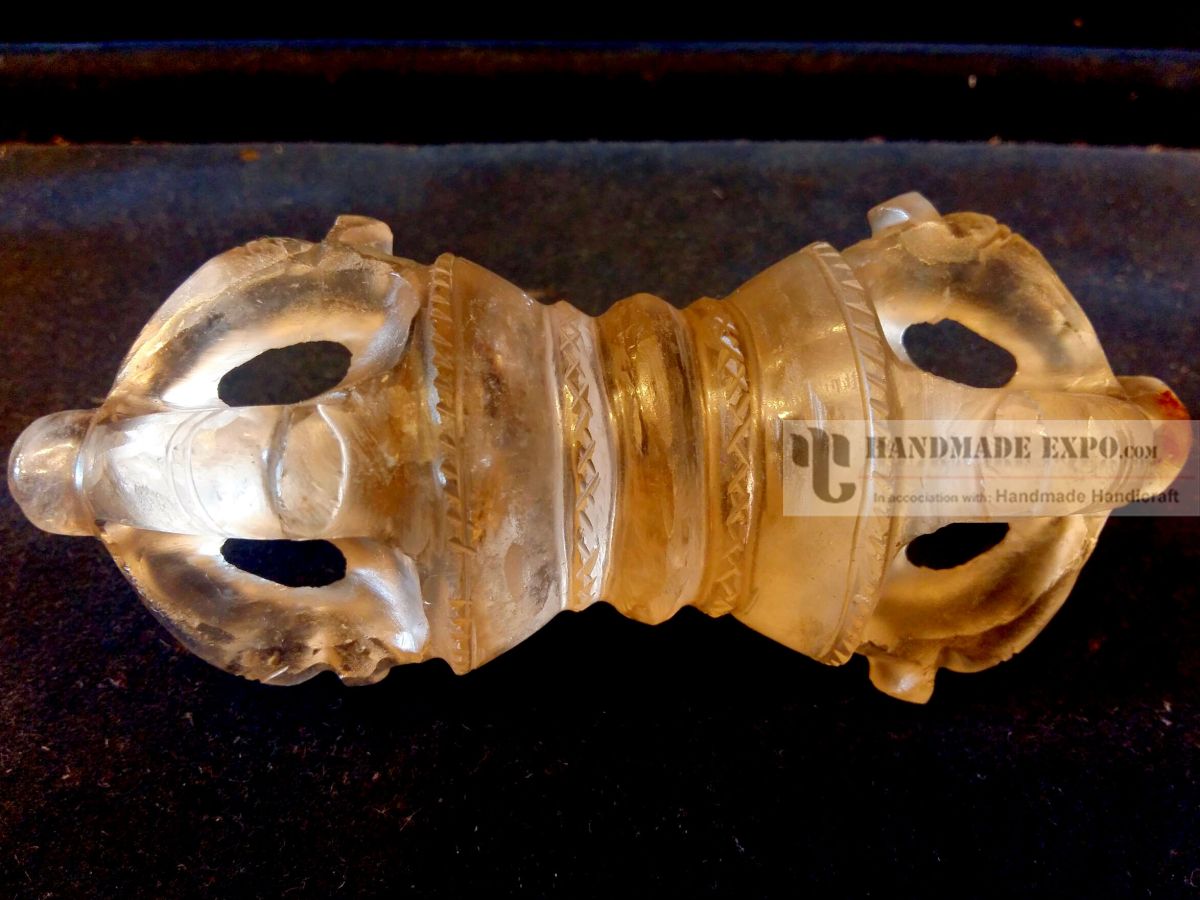

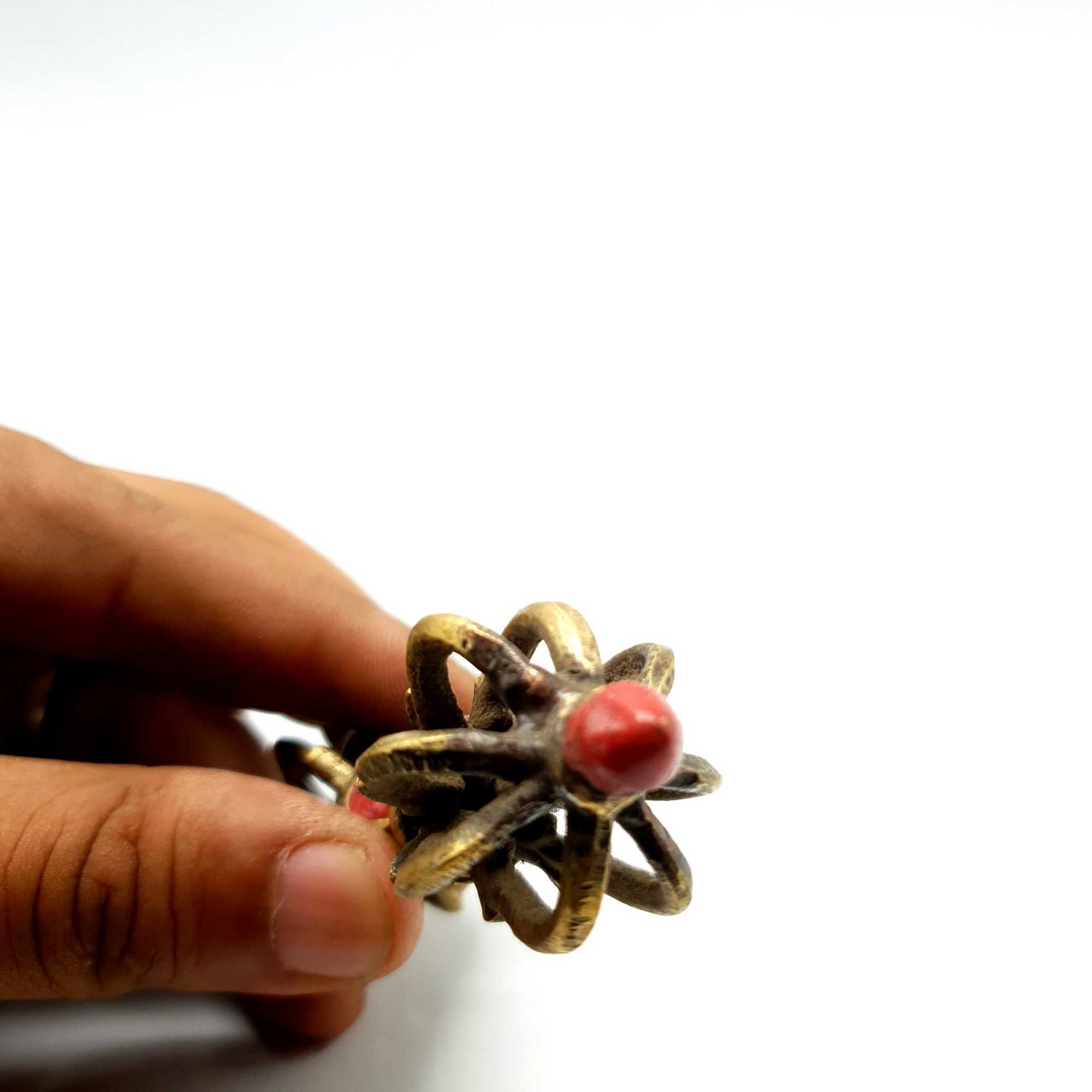
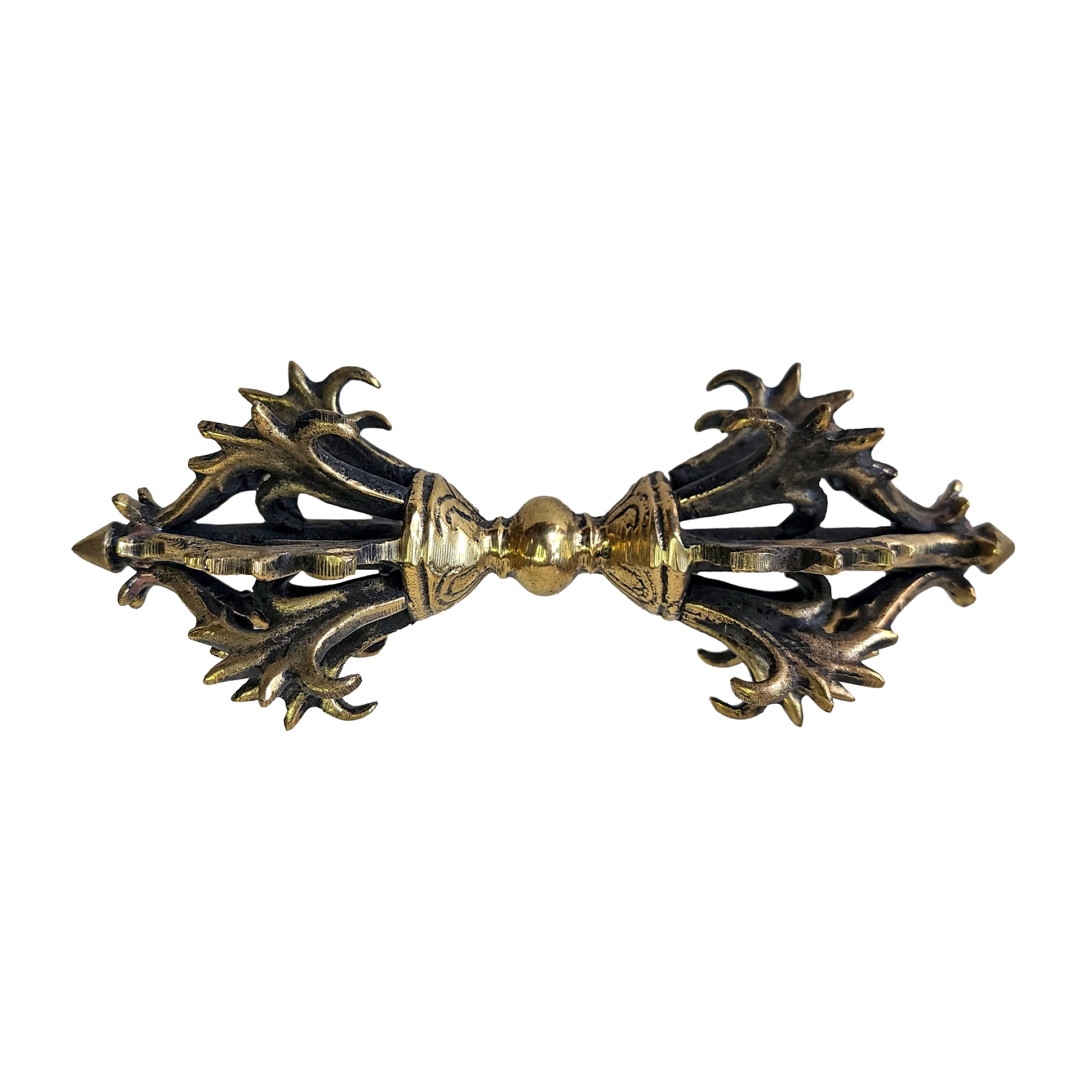 Dorje, Vajra Sand Casting, Glossy Finishing" title="Buddhist Ritual Item
Dorje, Vajra Sand Casting, Glossy Finishing" title="Buddhist Ritual Item 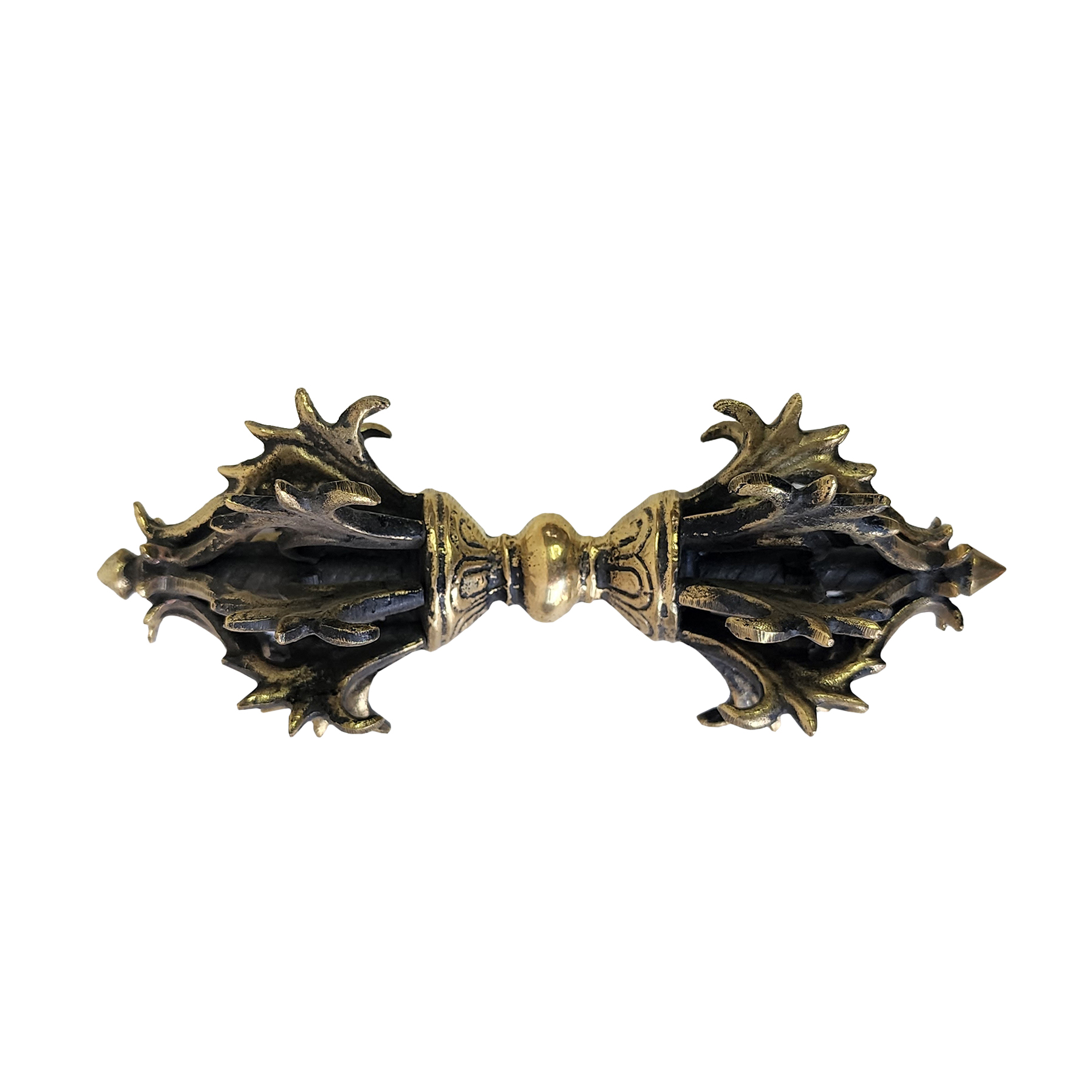 Dorje, Vajra Sand Casting, Glossy Finishing" title="Buddhist Ritual Item
Dorje, Vajra Sand Casting, Glossy Finishing" title="Buddhist Ritual Item 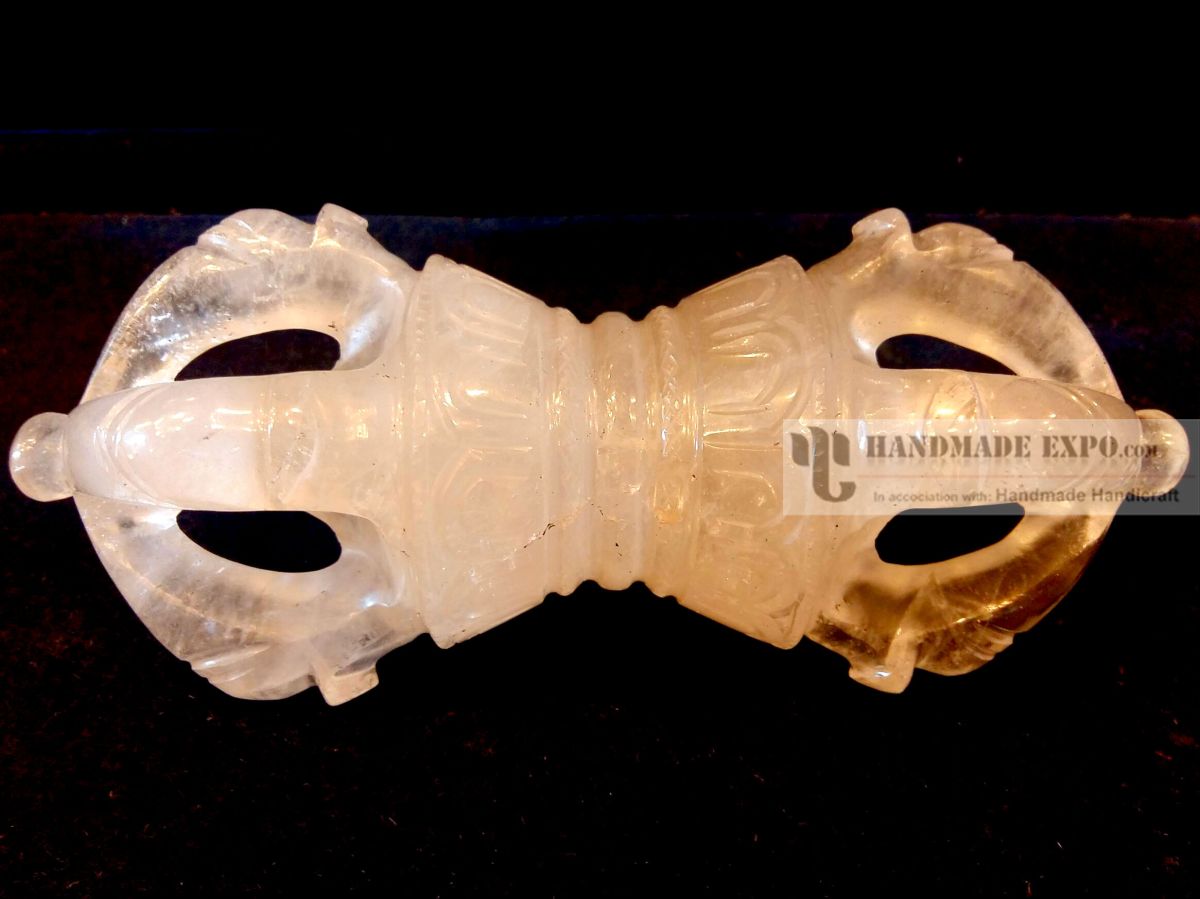
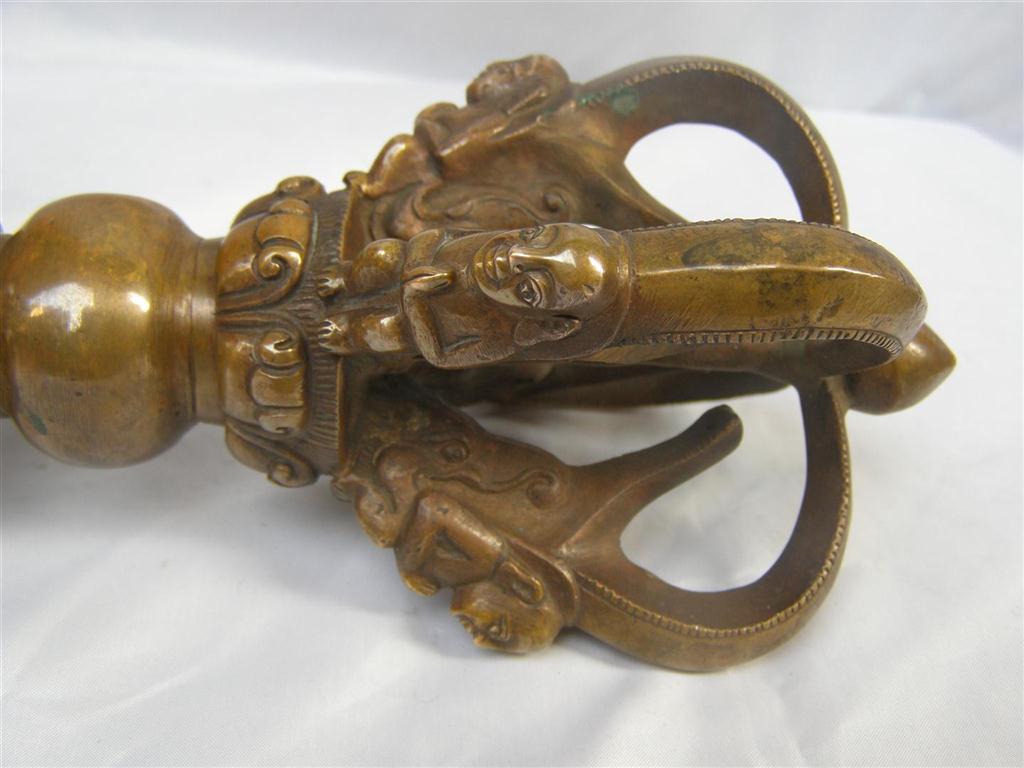 Old Post,
Old Post, 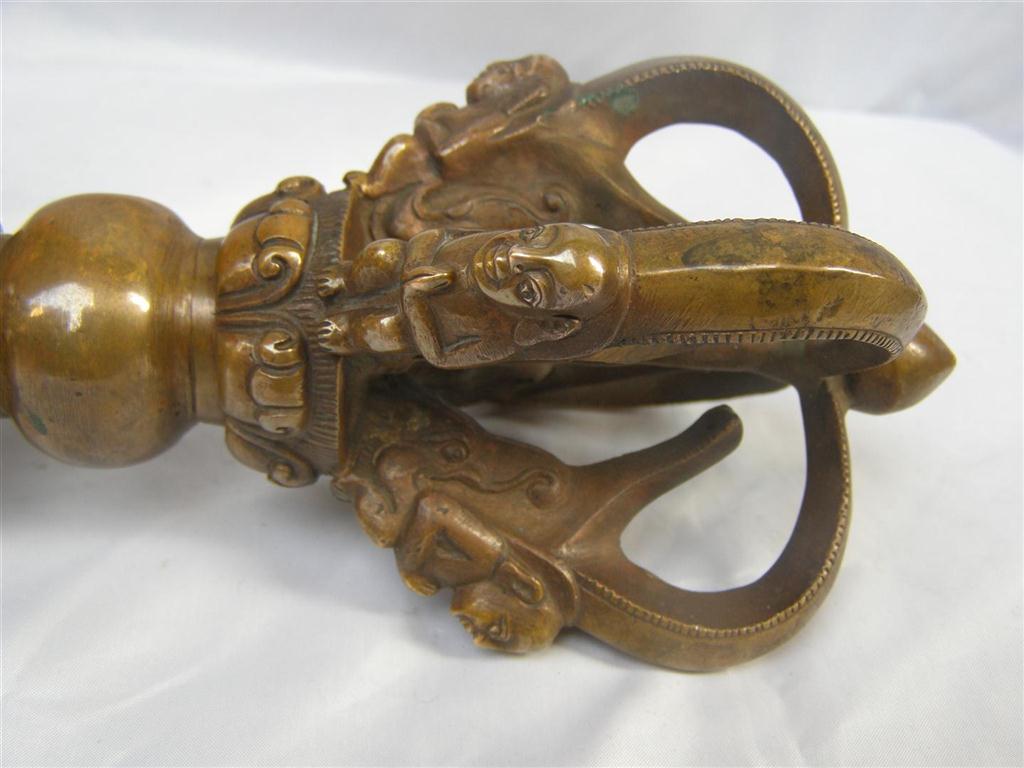 Old Post,
Old Post, 